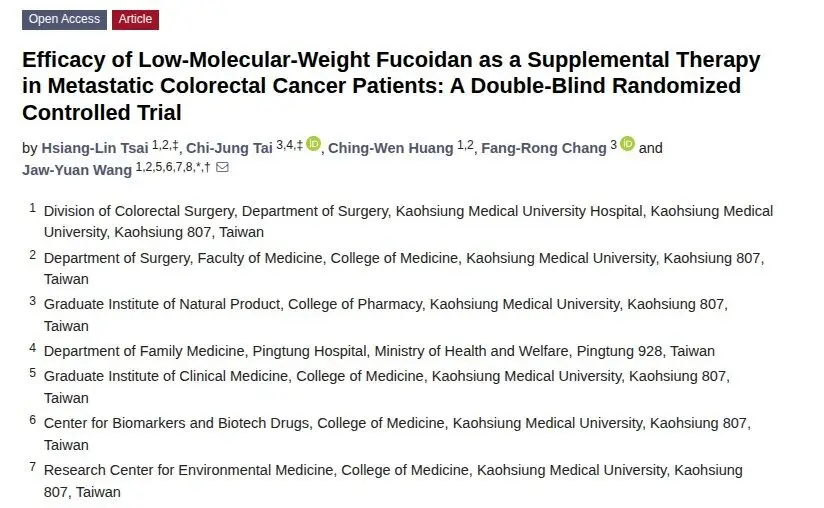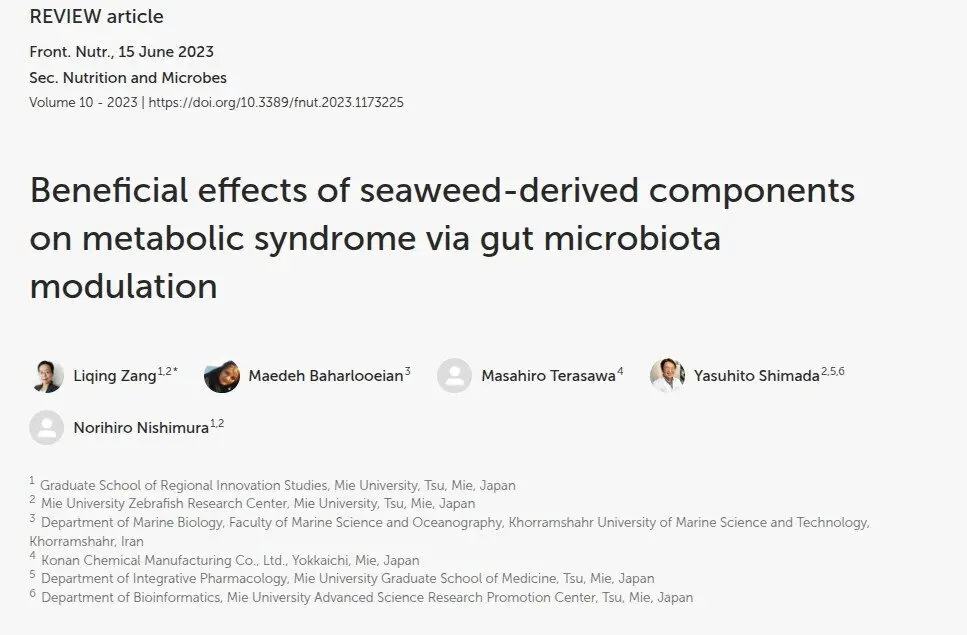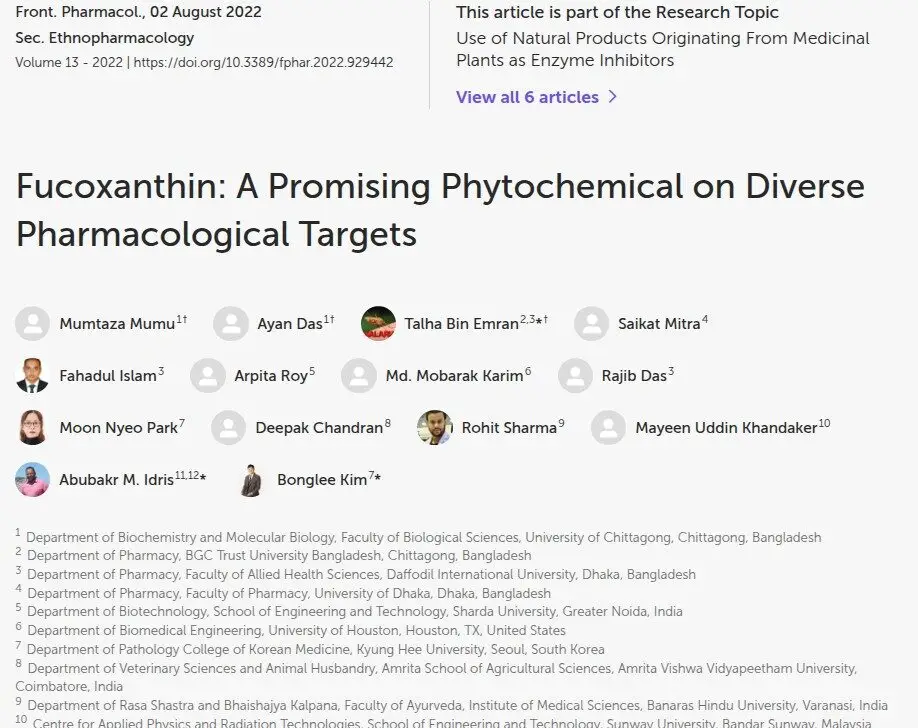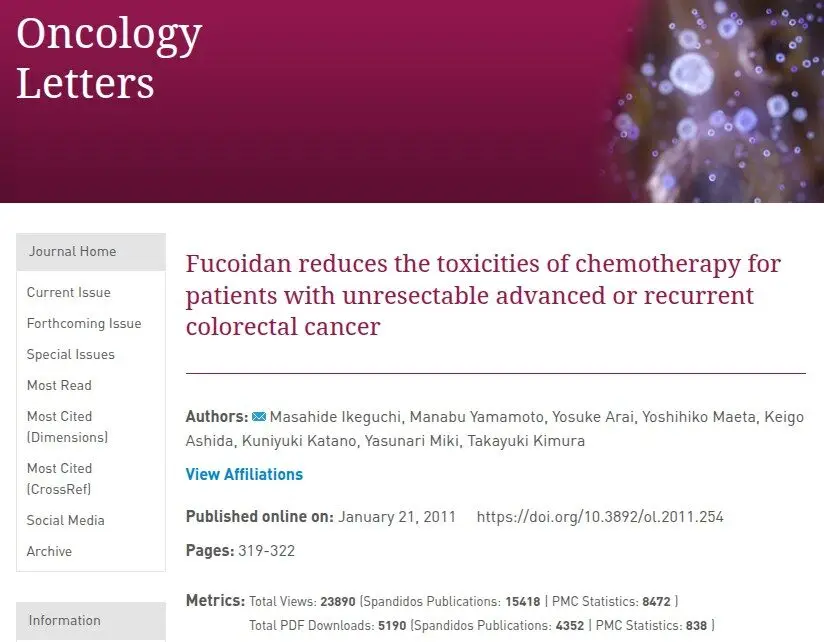To the best of our knowledge, this is the first clinical trial evaluating the efficacy of fucoidan. In our study, the patients in the study group received 4 g of LMF BID powder for six months. The results reveal that the DCR was significantly higher, with an increase of 23.6% for the study group when compared to the control group. Moreover, the ORR tended to be insignificantly higher in the study group when compared to the control group. A trend of improved OS and PFS was also noted in our an...
The form creates your own page where you can describe your plan and upload details of supplements, functional foods and anything else you like to include
UPDATE an existing plan using the form below this one
ALWAYS ANONYMOUS
UPDATES : Select the name of your plan below (“select post”)
Make any changes you want including uploading new files. These will replace your earlier entries.
In case of any issue just reach out using our contact form




